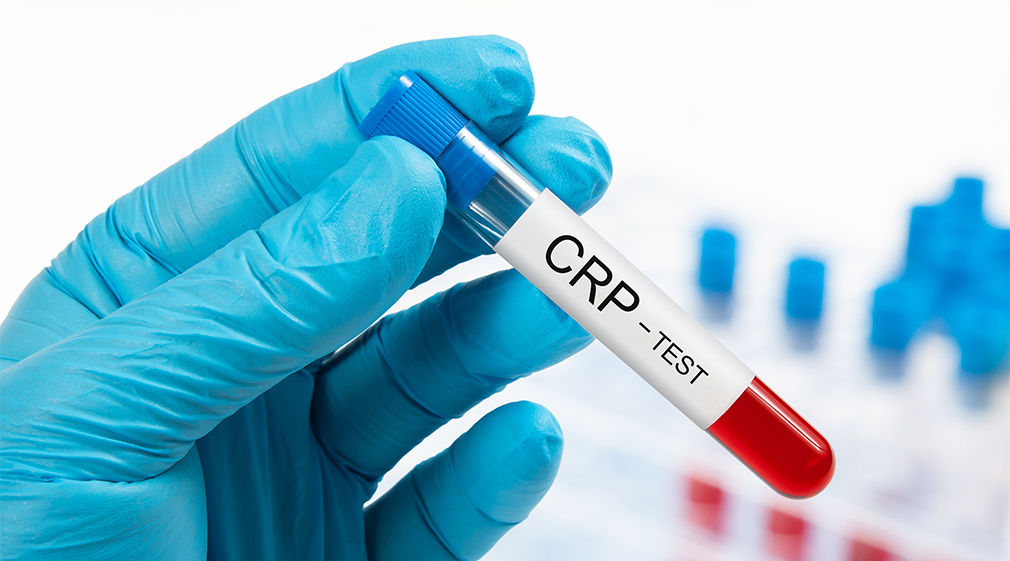-

We Are Now Open On Saturdays
-
20 Old Brompton Road, South Kensington, London SW7 3DL

We Are Now Open On Saturdays
20 Old Brompton Road, South Kensington, London SW7 3DL

Inflammation is the body’s natural defence response to infection, injury, or harmful stimuli. However, persistent inflammation without an obvious cause may indicate an underlying health condition that requires medical assessment. C-reactive protein (CRP) test and the erythrocyte sedimentation rate (ESR) test are two of the most common blood tests used to assess inflammation.
If you are not sure if your symptoms warrant testing, you can schedule an appointment with our London GP Clinic to receive tailored advice and rapid access to investigations.
Inflammatory markers are substances in the blood that rise when the body is fighting infection, healing from injury, or responding to inflammation. They are indirect indicators of inflammation used by doctors to support diagnosis. They cannot diagnose a condition specifically, but they will assist with the investigation.
If you would like these markers tested along with more general health checks, you can visit our page for packages and individual tests with quick turnaround times.
CRP is an acute-phase protein, which suggests it can rise within a few hours of an injury or infection. An elevated CRP indicates that the immune system is actively responding to infection, injury, or inflammation.
Elevated CRP may be related to:
If you are not sure whether to order an isolated CRP test or a larger panel test, it is often best to book a same-day appointment with a doctor for a tailored approach to your testing, symptoms and medical history.
ESR measures how fast red blood cells clump and then fall (i.e., sediment) in a standard tube using graduated markings. Inflammation alters blood proteins, which causes red cells to clump and fall faster.
An elevated ESR may be suggestive of:
Most of our health screening packages include ESR along with comprehensive blood tests, making it easy to assess inflammation and organ function together.
|
Feature |
CRP |
ESR |
|
Speed of response |
Raises within a few hours of acute inflammation |
Raises more gradually (over days for example) |
|
Specificity |
More specific to acute inflammation |
Less specific; influenced by many factors |
|
Common use |
Detecting or monitoring acute infections or flare-ups |
Tracking chronic inflammatory conditions |
Doctors will commonly order both of these tests simultaneously as they provide good complementary information. If you’re unsure which test is more appropriate, your GP can provide a clinical assessment and recommend the most suitable option.
Ask about CRP or ESR if you have:
Prefer to do everything in one visit? You can directly book private blood tests without consulting first, and most things are ready quickly, with GP review after for a result interpretation and further guidance.
CRP and ESR tests cannot diagnose anything by themselves. Factors affecting your results include:
A same-day GP can review your symptoms, medical history, and medications to determine whether further tests or imaging are needed.
For organ-specific assessment, your healthcare professional may add tests such as thyroid, kidney, or liver function profiles when clinically indicated.
You can book a Private GP consultation for once you are ready to consider treatment and interpret all your results (for example from blood tests). If time is limited or you need urgent review, our same-day doctor service can provide prompt assessment and guidance.
If you are concerned about symptoms or want to be proactive about your health, you can consider the following packages:
No, you can directly schedule a blood test or health screening, or speak to a GP in advance, if preferred.
Yes, several blood tests and screening packages have ESR/FBC included in core markers.
The results of most blood tests are available in 24 to 48 hours. Visit our blood tests page for details and bookings.